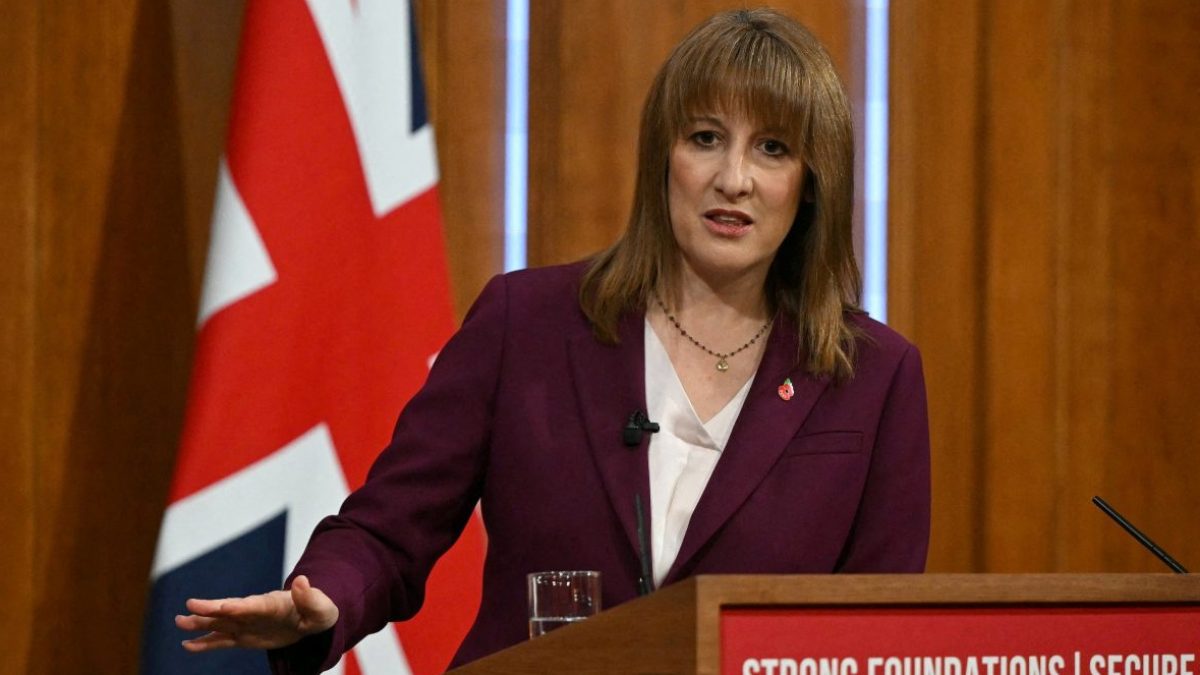Chancellor Rachel Reeves is preparing to unveil the autumn Budget with multiple rumours about possible pension changes circulating ahead of her speech.
From potential cuts to tax relief to new limits on salary sacrifice, millions of savers could see the way they build and access their retirement income altered.
Reeves needs to plug a £20bn to £30bn gap in the public finances, according to the Office for Budget Responsibility (OBR), but she has downplayed this figure.
New FeatureIn ShortQuick Stories. Same trusted journalism.
With so many proposals still in play, uncertainty is growing for anyone planning their financial future.
Here, The i Paper explores the key pension tax changes that could be announced next Wednesday – and what they might mean for you.
Cuts to tax relief on pension contributions
When workers pay into a pension, the government adds a top-up known as tax relief.
This boosts savings by at least 20 per cent, and even more for higher-rate taxpayers on 40 per cent or 45 per cent – making it one of the most valuable incentives for retirement saving.
Each year, speculation swirls about a clampdown aimed at making the system less generous for higher earners.
Experts say such a move is unlikely this time, but if Reeves does act, she could abolish higher-rate relief or introduce a flat 30 per cent rate, according to Stephen Barber, professor of global affairs at the University of East London.
He said: “The unintended consequences for earning growth and pension provision makes this unlikely.
“Indeed, it could be a particular challenge to those in the £100,000 to £125,000 bracket where earners are trapped at a 62 per cent marginal rate.
“Removing incentives to contribute to pensions would be more likely to disincentivise work and earnings more than contributing more to the Treasury.”
Salary sacrifice limits
Reeves is reportedly considering a cap of £2,000 a year on pension contributions made through salary sacrifice. Above that amount, employees would pay the full rate of national insurance (NI) on contributions.
Salary sacrifice allows workers to give up part of their pay in return for an equivalent pension contribution from their employer. This reduces income tax and NI for the employee and cuts the employer’s NI bill.
At present, there is no limit on how much can be routed into pensions this way.
The proposed cap would save the Government around £2bn annually but risks deterring pension saving.
Jason Hollands, managing director of Evelyn Partners, said the move will “reduce some of the attractions of saving more into a pension and will mean higher NI costs docked off pay packets for workers affected”.
He believes private sector workers would bear the brunt as many private firms offer such arrangements.
Hollands explained: “The practical effect on individuals in salary sacrifice schemes who are contributing more than £2,000 to a pension each year will be higher NI bills – as they will no longer be able to mitigate this cost and reduced flexibility, especially for people who typically receive bonuses and might choose to waive these from a pension contribution instead.
“For employers, this will be an added cost burden coming on top of the employer’s NI contribution hikes last year that have caused businesses to rethink hiring plans and crushed confidence.”
Scrapping the triple lock
Earlier this year, the Government’s fiscal watchdog estimated that the annual cost of the triple lock will hit £15.5bn by 2030 – three times its original projection.
The pledge, introduced in 2011, ensures the state pension rises each year by the highest of inflation, wage growth or 2.5 per cent.
The OBR has said it remains “committed” to the policy, but Barber believes it could still come under scrutiny.
He said: “One area that would make a big difference to balancing the Chancellor’s Budget now and over the coming years, would be to scrap the triple lock on state pensions.
“This would likely be politically explosive. This being the case, those existing on state pensions will start paying tax if allowances remain frozen, providing another political headache.”
Reduction in tax-free cash
Although a cut to the amount of tax-free cash you can take from your pension had been widely anticipated, reports now suggest the Government has ruled it out.
Still, Hollands warns that “nothing can be completely ruled out”, citing last week’s reversal on planned income tax rises.
Currently, savers can take up to 25 per cent of their pension as tax-free cash from age 55, often used to clear debts, buy property or fund major life plans.
The previous Conservative government introduced a cap of £268,275 – the equivalent of 25 per cent of a £1,073,100 pension.
Fears have persisted that Labour could reduce the limit to £100,000 or lower.
Experts say even if the Government does not make any changes to this limit, it may be too late for some people.
Hollands said: “These worries fuelled a surge in people taking their tax-free cash earlier than they might have done otherwise, both last year – when no changes were announced – and once again in the run-up to this month’s Budget.
“Reports indicate that the Chancellor has decided not to move against tax-free cash after all. That news comes too late for the many people who had acted on the speculation and have cashed in a quarter of their retirement pot in haste and now have no ability to change their mind.
“Those who took their money with no particular purpose for the cash in mind and who may be several years away from retirement, will now miss out on the potential for further growth in their pension pots, leaving them worse off in retirement.”

